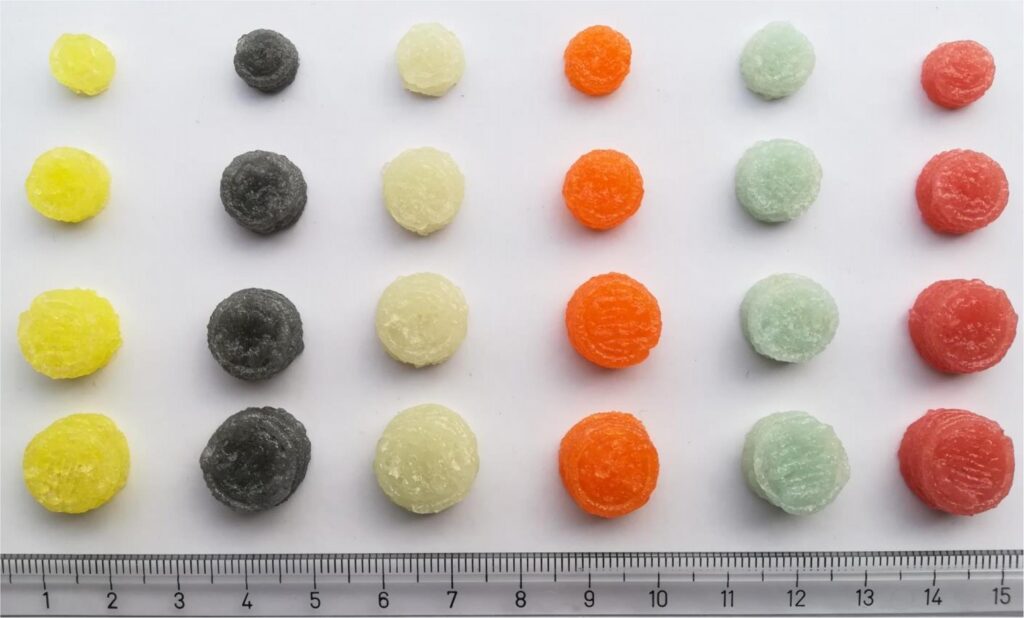
The British pharmaceutical company FabRx is using 3D printing technology to create customized medication for children with a rare metabolic disorder. This condition, maple syrup urine disease (MSUD), typically requires tailored treatments for each patient and costs physicians time in preparing these customized capsules. Using 3D printing technology, FabRx offers an innovative solution that can rapidly create these unique pills with specific doses, flavors, and shapes to not only effectively manage MSUD but improve children’s acceptance of these pills as well.
About Maple Syrup Urine Disease
The condition, maple syrup urine disease (MSUD) is an inherited autosomal recessive disease that hinders one’s ability to digest proteins. The name stems from the sweet-smelling odor of the affected infants’ urine.
Patient UK reports that the prevalence of MUSD is 1 in every 185,000 newborns. The condition persists throughout life, requiring therapies and supplements to be made uniquely for each patient’s needs. The typical treatment regimen involves a strict diet and amino acid supplementation from valine and isoleucine. The specific dose required is unique to each patient and must be customized depending on age, weight, and isoleucine levels in the blood.
Physicians must currently create these customized treatments manually, which is a tedious and time-consuming task. Aiming to improve the safety and acceptability of isoleucine therapy in pediatric MSUD patients, these FabRx researchers are using 3D printing to create personalized therapies with unique doses, shapes, and flavors.
“There is a real need for new manufacturing systems to prepare personalised medicines. The potential application of the 3D printing for rare diseases are countless and it could help to make the medicines safer and more attractive to children,” stated Maria-Luz Couce, Head of the Paediatrics Section of the Clinical University Hospital concluded.
The Power of 3D Printing Pills
The Printlets were evaluated in a study conducted by researchers from the University College London (UCL), University of Santiago de Compostela (USC), Spain, and the Clinic University Hospital in Santiago de Compostela. The team found that these 3D printed tablets worked as effectively as traditional treatments and were more willingly accepted by the patient.
“Fabrx is delighted to work towards solving problems that are not tackled by the traditional pharma industry,” said Alvaro Goyanes, Development Director and lead project researcher at FabRx. “We are also very glad to collaborate with teams with vision and interest to bring 3d printing of personalized medicines a significant step closer to the clinic”.
FabRx has been researching the use of 3D printing in creating medications for over 5 years at UCL’s Advanced 3D Printing Lab. Their reason in doing so is that each patient is unique and has different needs for personalized patient care. The company currently uses four different 3D printing techniques, SLA, SLS, FFF, and semi-solid extrusion, to develop treatments. In addition, FabRx received a £650,000 grant this year from Innovate UK to facilitate the creation of a 3D printer than can create these therapeutic drugs.
These Printlets are designed to contain unique dosages of different drugs and can be formed in various sizes and shapes to simplify swallowing. They can be created with up to 6 different drugs, each represented by a different color. Rather than manually putting these drugs into a capsule, this technique yields chewable tablets that can be rapidly generated. A month’s supply of pills (28 printlets) can be created with this 3D printer in under 8 minutes.
Monitoring MSUD patients who used the Printlets for half of a year, the researchers found that personalized Printlets were as effective as traditional medication in managing patients’ isoleucine levels. They also note that the isoleucine concentrations in the blood were closer to the target levels and showed less variation in those who consumed the Printlets. Using 3D printing to make tablets of different colors and flavors was effective in improving patients’ acceptability of the pills as well.
FabRx: The First Clinical Study Using Personalized #3DPrinted Pills (In Humans)https://t.co/uztApCNnVR@FabRx_3DP pic.twitter.com/ikDGizpinK
— 3D Printing (@3D_Printing_it) September 11, 2019







 © 2025 Mashup Media, LLC, a Formedics Property. All Rights Reserved.
© 2025 Mashup Media, LLC, a Formedics Property. All Rights Reserved.